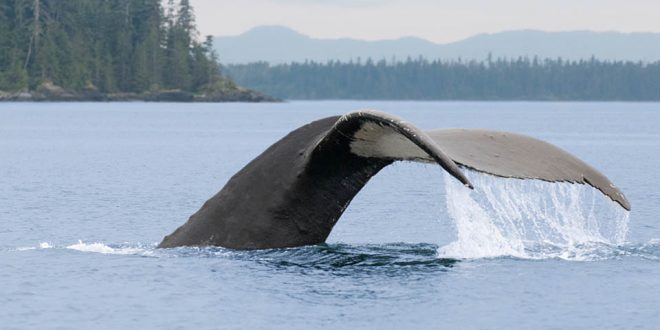The Mariner’s Guide to Whales, Dolphins and Porpoises of Western Canada is a resource developed by the Coastal Ocean Research Institute, Prince Rupert Port Authority and Port of Vancouver.
This guide is targeted at large vessel mariners and aims to inform them about the cetacean species along the B.C. coast, threats to these animals that may be associated with large vessels and shipping, and how mariners can minimize these threats.
Executive Director of Orca Relief Citizens’ Alliance and former Special Agent-in-Charge at the U.S. Environmental Protection Agency Scott West says voluntary guidelines such as this only reach so far.
“Voluntary guidelines only work for individuals already committed to protecting cetaceans. Individuals with other priorities need enforced regulations.”
The mariner’s guide focuses specifically on vessel strikes, disturbance, underwater noise and pollution.
It says, studies have shown that ships over 80 metres long, travelling faster than 14 knots are more likely to kills cetaceans than those below 10 knots.
West says some cetaceans like orcas, are more negatively affected by underwater noise than others.
He adds, large vessels are generally “detrimental” to cetaceans.
“Large whales suffer from impacts with ships and many die. All cetaceans are acoustic animals and vessel noise masks their ability to navigate, communicate, and forage.”
In order to reduce the risk of vessel-cetacean collisions and disturbances, the mariner’s guide suggests a five step strategy.
As cited in the guide, vessel collisions are a recognized cause of cetacean death.
From 2004-2011, 30 incidents categorized as “definite” or “probable” were reported to the B.C. Marine Mammal Response Network hotline and investigated by Fisheries and Oceans Canada.
In order to reduce the cases of human-induced harm, West says government should “step in to adopt and enforce regulations” such as Water Protection Zones.
“Realistic approaches could consist of establishing protected areas or monitoring established shipping lanes and re-route them away from common or critical whale habitat.”
Agencies/Canadajournal
 Canada Journal – News of the World Articles and videos to bring you the biggest Canadian news stories from across the country every day
Canada Journal – News of the World Articles and videos to bring you the biggest Canadian news stories from across the country every day



